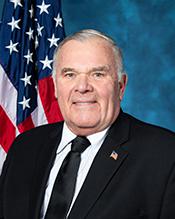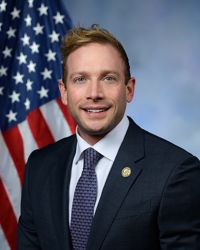0
0
0
Precipitation Forecasting for Agriculture Act.
1/11/2024, 8:26 PM
Summary of Bill HR 3802
Bill 118 hr 3802, also known as the Precipitation Forecasting for Agriculture Act, is a piece of legislation introduced in the US Congress. The main goal of this bill is to improve the accuracy and reliability of precipitation forecasting for agricultural purposes.
The bill proposes the establishment of a program within the National Oceanic and Atmospheric Administration (NOAA) that focuses specifically on developing and implementing advanced technologies for predicting precipitation patterns. This program would work in collaboration with other federal agencies, research institutions, and private sector entities to gather data, conduct research, and improve forecasting models.
The Precipitation Forecasting for Agriculture Act also aims to provide timely and accurate information to farmers, ranchers, and other stakeholders in the agricultural industry. By enhancing precipitation forecasting capabilities, the bill seeks to help farmers make more informed decisions about planting, irrigation, and other agricultural practices, ultimately improving crop yields and reducing risks associated with weather-related events. Overall, the Precipitation Forecasting for Agriculture Act is designed to support the agricultural sector by enhancing the tools and resources available for predicting precipitation patterns. This legislation has the potential to benefit farmers, ranchers, and other stakeholders in the industry by providing them with valuable information to help them better manage their operations and adapt to changing weather conditions.
The bill proposes the establishment of a program within the National Oceanic and Atmospheric Administration (NOAA) that focuses specifically on developing and implementing advanced technologies for predicting precipitation patterns. This program would work in collaboration with other federal agencies, research institutions, and private sector entities to gather data, conduct research, and improve forecasting models.
The Precipitation Forecasting for Agriculture Act also aims to provide timely and accurate information to farmers, ranchers, and other stakeholders in the agricultural industry. By enhancing precipitation forecasting capabilities, the bill seeks to help farmers make more informed decisions about planting, irrigation, and other agricultural practices, ultimately improving crop yields and reducing risks associated with weather-related events. Overall, the Precipitation Forecasting for Agriculture Act is designed to support the agricultural sector by enhancing the tools and resources available for predicting precipitation patterns. This legislation has the potential to benefit farmers, ranchers, and other stakeholders in the industry by providing them with valuable information to help them better manage their operations and adapt to changing weather conditions.
Read the Full Bill
Current Status of Bill HR 3802
Bill HR 3802 is currently in the status of Bill Introduced since June 5, 2023. Bill HR 3802 was introduced during Congress 118 and was introduced to the House on June 5, 2023. Bill HR 3802's most recent activity was Referred to the House Committee on Science, Space, and Technology. as of June 5, 2023
Bipartisan Support of Bill HR 3802
Total Number of Sponsors
1Democrat Sponsors
0Republican Sponsors
1Unaffiliated Sponsors
0Total Number of Cosponsors
2Democrat Cosponsors
0Republican Cosponsors
2Unaffiliated Cosponsors
0Policy Area and Potential Impact of Bill HR 3802
Primary Policy Focus
Agriculture and FoodAlternate Title(s) of Bill HR 3802
Precipitation Forecasting for Agriculture Act.
Precipitation Forecasting for Agriculture Act.
To accelerate subseasonal to seasonal prediction skills related to precipitation forecasts for agriculture in the central United States, and for other purposes.
Comments
Sponsors and Cosponsors of HR 3802
Latest Bills
Preventing Elected Leaders from Owning Securities and Investments (PELOSI) Act
Bill S 1498December 11, 2025
Holocaust Expropriated Art Recovery Act of 2025
Bill S 1884December 11, 2025
Enduring Justice for Victims of Trafficking Act
Bill S 2584December 11, 2025
SPEED Act
Bill HR 4776December 11, 2025
Southcentral Foundation Land Transfer Act of 2025
Bill HR 3620December 11, 2025
Affordable HOMES Act
Bill HR 5184December 11, 2025
To reauthorize the Junior Duck Stamp Conservation and Design Program Act of 1994.
Bill HR 1098December 11, 2025
A bill to provide for an extension of the legislative authority of the National Emergency Medical Services Memorial Foundation to establish a commemorative work in the District of Columbia and its environs.
Bill S 2546December 11, 2025
Moab UMTRA Project Transition Act of 2025
Bill S 1321December 11, 2025
Federal Mechanical Insulation Act
Bill HR 3474December 11, 2025

